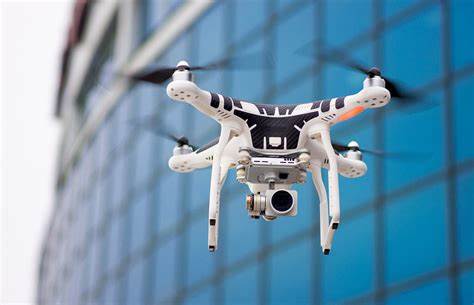Unmanned Aerial Vehicles (UAVs), commonly known as drones, have emerged as a disruptive technology with the potential to revolutionize the aviation industry. From aerial photography and surveillance to package delivery and infrastructure inspection, drones are being deployed across various sectors for a wide range of applications. As drone technology continues to evolve, several key trends are shaping the future of the aviation industry:
- Commercial Applications: One of the most significant trends in drone technology is the proliferation of commercial applications across industries such as agriculture, construction, mining, and logistics. Drones equipped with high-resolution cameras, LiDAR sensors, and other specialized payloads are being used for aerial mapping, crop monitoring, site surveying, and inventory management, enabling businesses to collect data more efficiently and make informed decisions.
- Autonomous Operation: Advancements in artificial intelligence (AI) and machine learning are driving the development of autonomous drones capable of operating without human intervention. These drones can navigate complex environments, avoid obstacles, and execute predefined missions with precision and efficiency. Autonomous drones have the potential to revolutionize industries such as transportation, emergency response, and surveillance by reducing costs, increasing safety, and improving operational efficiency.
- Urban Air Mobility (UAM): The concept of Urban Air Mobility (UAM) envisions a future where drones and other electric vertical takeoff and landing (eVTOL) aircraft provide on-demand aerial transportation services in urban areas. UAM promises to alleviate traffic congestion, reduce commute times, and enhance mobility by enabling point-to-point air travel within cities. Companies like Uber, Volocopter, and EHang are pioneering UAM initiatives and developing electric VTOL aircraft for urban transportation.
- Drone Swarms: Drone swarms, consisting of multiple drones operating in coordination, are emerging as a powerful tool for various applications, including search and rescue, environmental monitoring, and entertainment. These swarms can perform complex tasks collaboratively, such as forming geometric patterns, creating aerial displays, or conducting synchronized maneuvers. Drone swarms have the potential to revolutionize military operations, disaster response, and public events by leveraging collective intelligence and distributed capabilities.
- Regulatory Frameworks: As drone technology matures and becomes more widespread, regulatory frameworks governing drone operations are evolving to ensure safety, security, and compliance with airspace regulations. Aviation authorities around the world are developing rules and standards for drone registration, pilot certification, airspace integration, and remote identification to mitigate risks and address concerns related to privacy, airspace congestion, and unauthorized drone activity.
- Delivery Drones: Delivery drones, equipped with cargo compartments, are being developed by companies like Amazon, UPS, and FedEx to enable autonomous package delivery services. These drones can transport small packages over short distances, bypassing traffic congestion and delivering goods quickly and efficiently. Delivery drones have the potential to revolutionize the logistics industry by reducing delivery times, lowering costs, and expanding access to remote areas.
- Environmental Sustainability: Electric-powered drones are emerging as a more environmentally sustainable alternative to traditional gasoline-powered aircraft, reducing carbon emissions and noise pollution. Advances in battery technology and electric propulsion systems are enabling longer flight times and greater payload capacities for electric drones, making them viable for a broader range of applications, including aerial photography, environmental monitoring, and wildlife conservation.
In conclusion, drone technology is poised to transform the aviation industry and revolutionize the way we transport goods, conduct business, and navigate urban environments. From commercial applications and autonomous operation to urban air mobility and delivery drones, the future of aviation is taking flight with drones at the forefront of innovation. As technology continues to advance and regulatory frameworks evolve, drones will play an increasingly integral role in shaping the future of transportation and logistics worldwide.

